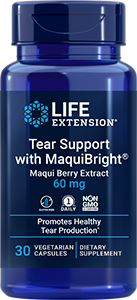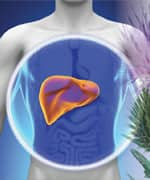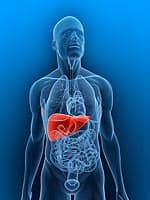|
Tuesday, July 21, 2015. On July 9, 2015, the Journal of the American College of Nutrition reported positive results for coenzyme Q10 (CoQ10) in a randomized, double-blind trial of men and women with nonalcoholic fatty liver disease (NAFLD), a disorder characterized by elevated serum liver enzyme levels, liver enlargement and fat accumulation in the liver, accompanied by increased inflammation.
"Recent evidence suggests that CoQ10 supplementation may be useful for improving and preventing pathological conditions such as metabolic syndrome, hypertension, diabetes, liver diseases, and insulin resistance," write Farmaz Farsi, MSc of Ahvaz Jundishapur University of Medical Sciences and colleagues. "Because there is no universal treatment for NAFLD, and due to the antioxidant and anti-inflammatory properties of CoQ10, we hypothesized that oral CoQ10 supplementation could be effective in managing NAFLD and preventing its progression."
The trial included 41 patients with mild to moderate NAFLD. Twenty one participants received a placebo and 20 participants received 100 milligrams CoQ10 once daily for 12 weeks. Liver enzymes, markers of inflammation including serum high-sensitivity C-reactive protein (hs-CRP) and tumor necrosis factor alpha (TNF-a), adipokines and NAFLD grade (which is determined by the percentage of liver cells with fat droplets) were measured before and after the treatment period.
Among those who received CoQ10, serum hs-CRP and TNF-a levels were lower at the end of the trial in comparison with the placebo group as well as in comparison to the CoQ10 group's levels at the beginning of the study. Serum adiponectin (which has been associated with weight loss and other positive effects) was higher at the study's conclusion among those who received CoQ10 compared to those who received a placebo, and liver enzymes ALT, AST and GGT were lower at the end of the study compared to baseline levels in those given CoQ10.
NAFLD grade also improved among COQ10-supplemented subjects. While no patients were graded as normal prior to the intervention, four became normal after 12 weeks of CoQ10, in contrast with just one patient attaining this grade in the placebo group.
"CoQ10 supplementation might be considered a good adjuvant therapeutic option to attenuate systemic inflammation alongside other treatments for this disease," Dr Farsi and associates conclude. "Although this study verifies our hypothesis, long-term and larger studies are recommended to elucidate the potential mechanisms of CoQ10 therapy in patients with NAFLD and to confirm the present results."
|







